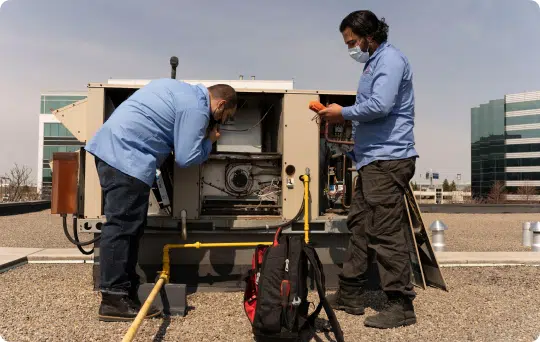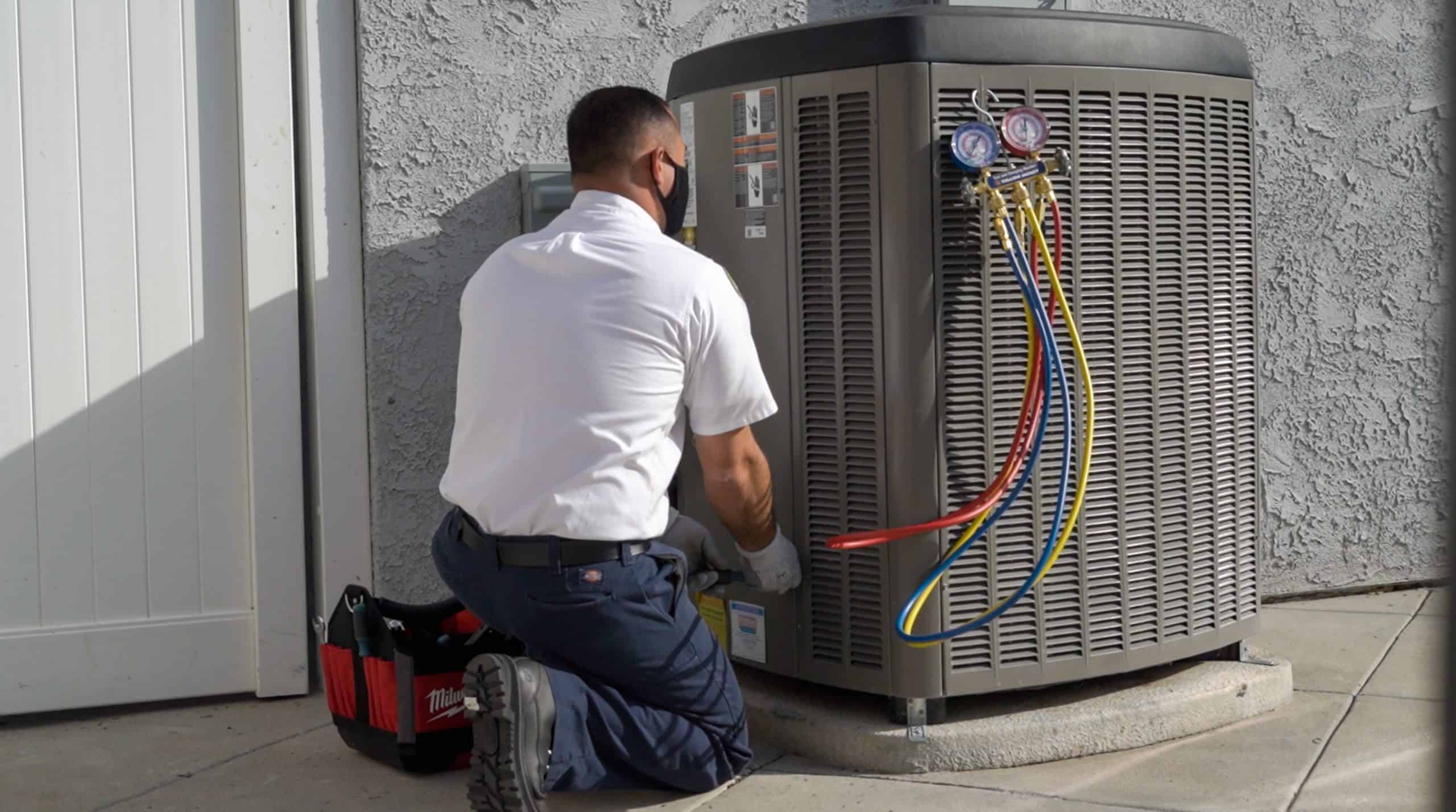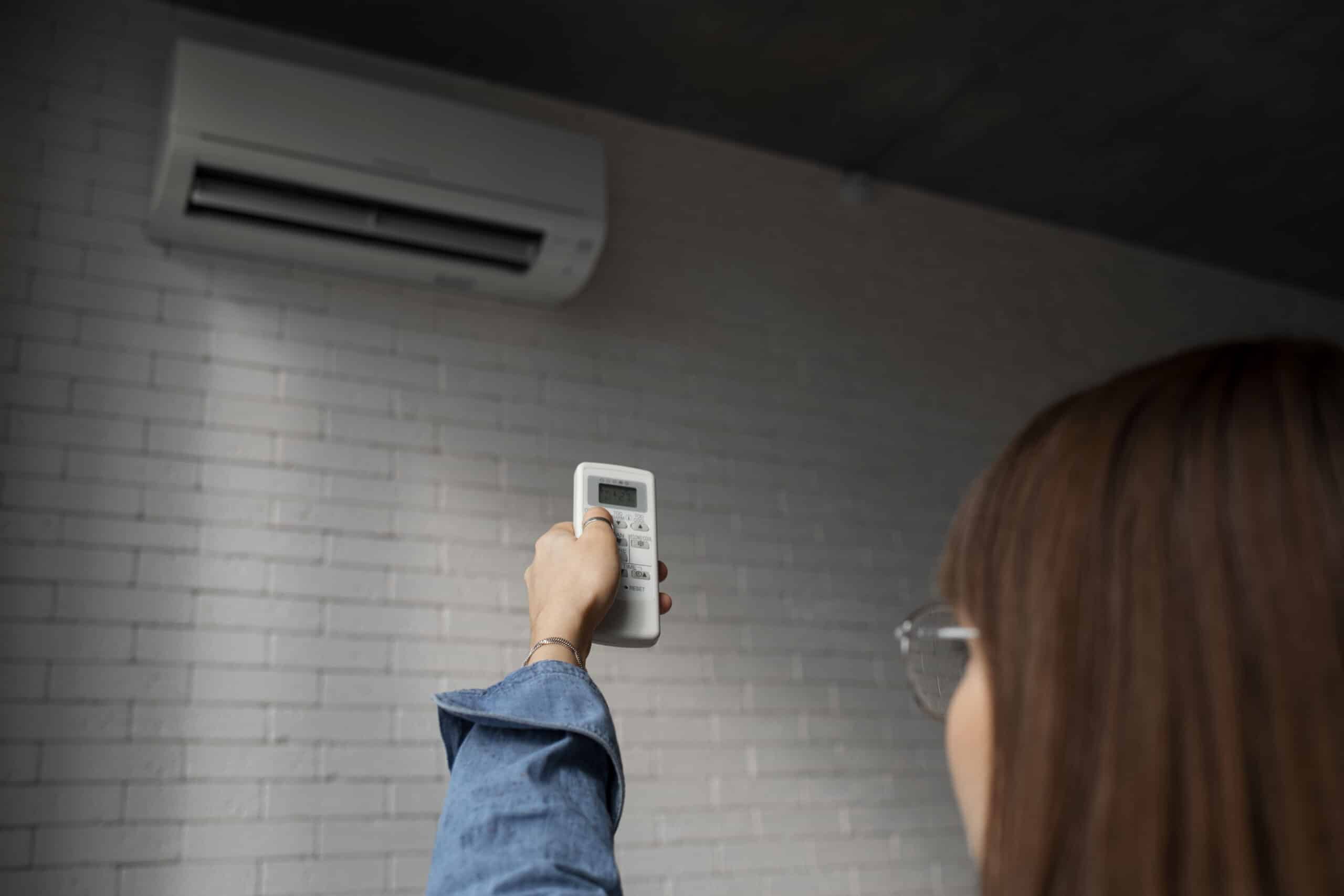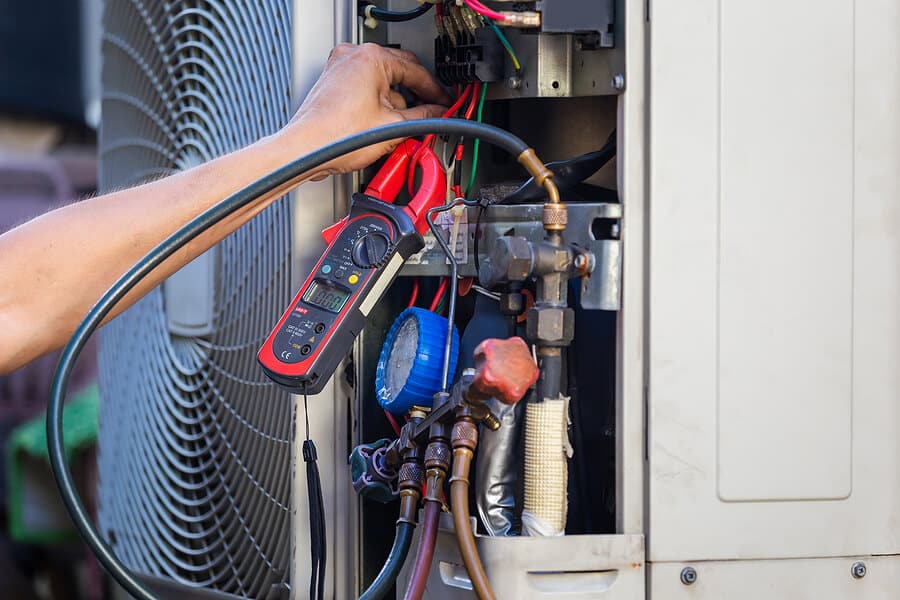Solve Heating Issues Quickly with DMAKS HVAC Repairs.
Solve Heating Issues Quickly with DMAKS HVAC Repairs.
Blog Article
Energy-Efficient HVAC Equipments to Conserve on Utility Expenses
As power costs remain to increase, the value of energy-efficient HVAC systems becomes significantly obvious. These systems not just assure significant financial savings on energy expenses but also add to an extra lasting future by lessening energy usage. With different alternatives offered, including geothermal heat pumps and ductless mini-splits, homeowner face a multitude of selections that can improve comfort and air quality. Nonetheless, comprehending the essential features and maintenance demands is necessary to maximizing these advantages. What aspects should be prioritized when picking the ideal system for your needs?
Advantages of Energy-Efficient A/c Systems
Energy-efficient Heating and cooling systems supply countless benefits that expand past simple expense financial savings. By eating less energy, these systems contribute to lower greenhouse gas discharges, aiding to combat climate change and promote sustainability.
Additionally, energy-efficient cooling and heating systems frequently offer improved comfort levels. A lot of these systems feature sophisticated modern technology that permits better temperature control and enhanced air top quality (DMAKS HVAC). This leads to a healthier indoor environment, which is especially crucial for people with allergic reactions or breathing concerns
In addition, buying energy-efficient HVAC systems can enhance property value. As even more customers focus on power effectiveness, homes and structures furnished with these systems might bring in higher quotes in the property market.
Types of Energy-Efficient HVAC Options
Just how can property owners and organizations pick the most ideal energy-efficient heating and cooling alternatives for their demands? The market offers a range of energy-efficient HVAC systems, each designed to enhance comfort while reducing power usage.
One choice is the variable cooling agent circulation (VRF) system, which efficiently manages the temperature in numerous zones within a structure. This system adapts its refrigerant flow to match the preferred temperature level, causing substantial power cost savings.
One more popular choice is geothermal heatpump, which make use of the earth's steady temperature to heat and cool areas. By transferring heat to and from the ground, these systems show excellent effectiveness, particularly in moderate environments.
Additionally, ductless mini-split systems give an energy-efficient choice for homes lacking ductwork. These systems enable for zone-specific heating and air conditioning, minimizing energy waste in empty locations.
Lastly, high-efficiency furnaces and air conditioning unit, with innovative SEER and AFUE ratings, use dependable environment control while consuming less power than typical models. By assessing these options, homeowners and companies can pick an a/c system tailored to their specific requirements and energy performance objectives.
Trick Attributes to Consider

Following, check out the sort of compressor made use of in the system. DMAKS HVAC. Variable-speed compressors can change their output to match the home heating or cooling demand, causing improved comfort and energy savings contrasted to single-speed models. In addition, seek systems furnished with clever thermostats that provide programmable setups and remote gain access to, enabling for far better control over power usage
Another crucial feature is the system's air filtering ability. High-efficiency filters can boost indoor air high quality and minimize power intake by making sure the system operates efficiently. Moreover, think about the type of refrigerant used; modern helpful site systems typically use environmentally friendly cooling agents that have a reduced ecological effect.
Lastly, make sure that the system works with zoning modern technology, which enables customized temperature level control in different areas of your home, enhancing convenience while lessening energy use.
Tips for Picking the Right System


Following, consider power effectiveness scores, especially the Seasonal Power Effectiveness Proportion (SEER) for cooling down systems and the Annual Gas Utilization Effectiveness (AFUE) for furnace. Higher ratings suggest better performance, which can bring about significant financial savings on energy expenses gradually.
Additionally, evaluate the sort of cooling and heating system that ideal suits your lifestyle and budget. Alternatives consist of air conditioning, ductless mini-splits, and heatpump, each with its own collection of benefits and downsides.
Do not forget the significance of correct setup and sizing; an inaccurately sized blog here system can result in ineffectiveness and enhanced wear. Finally, speak with an expert HVAC service provider to acquire professional suggestions customized to your home's unique requirements. This thorough method will certainly make certain that you choose an energy-efficient heating and cooling system that meets your needs and budget effectively.
Upkeep for Optimum Efficiency
When the ideal cooling and heating system is in location, continuous upkeep comes to be essential to guaranteeing optimal effectiveness and durability. A properly maintained system operates better, leading to reduced power intake and lowered energy costs. Regular assessments and tune-ups need to be set up a minimum of twice a year-- once before the air conditioning season and when before the heating season.

House owners must also be attentive about checking their HVAC system's performance. Uncommon noises, varying temperature levels, or boosted energy costs can indicate underlying issues that require immediate interest. By dealing with these issues quickly, home owners can avoid pricey fixings and expand the lifespan of their systems.
Investing in a look at these guys maintenance strategy with a certified technician not only boosts efficiency but additionally provides peace of mind, knowing that the system is running at its finest. DMAKS HVAC. Regular maintenance is as a result vital for maintaining power efficiency and decreasing general operational costs
Conclusion
In verdict, energy-efficient cooling and heating systems present a sensible option for decreasing energy costs while improving comfort and air quality. By including advanced technologies and options such as geothermal heatpump and ductless mini-splits, homeowner can achieve considerable power financial savings and contribute to environmental sustainability. Careful consideration of system attributes and ongoing upkeep even more ensures optimal performance, making energy-efficient systems a prudent investment for both economic and eco-friendly advantages.
Report this page